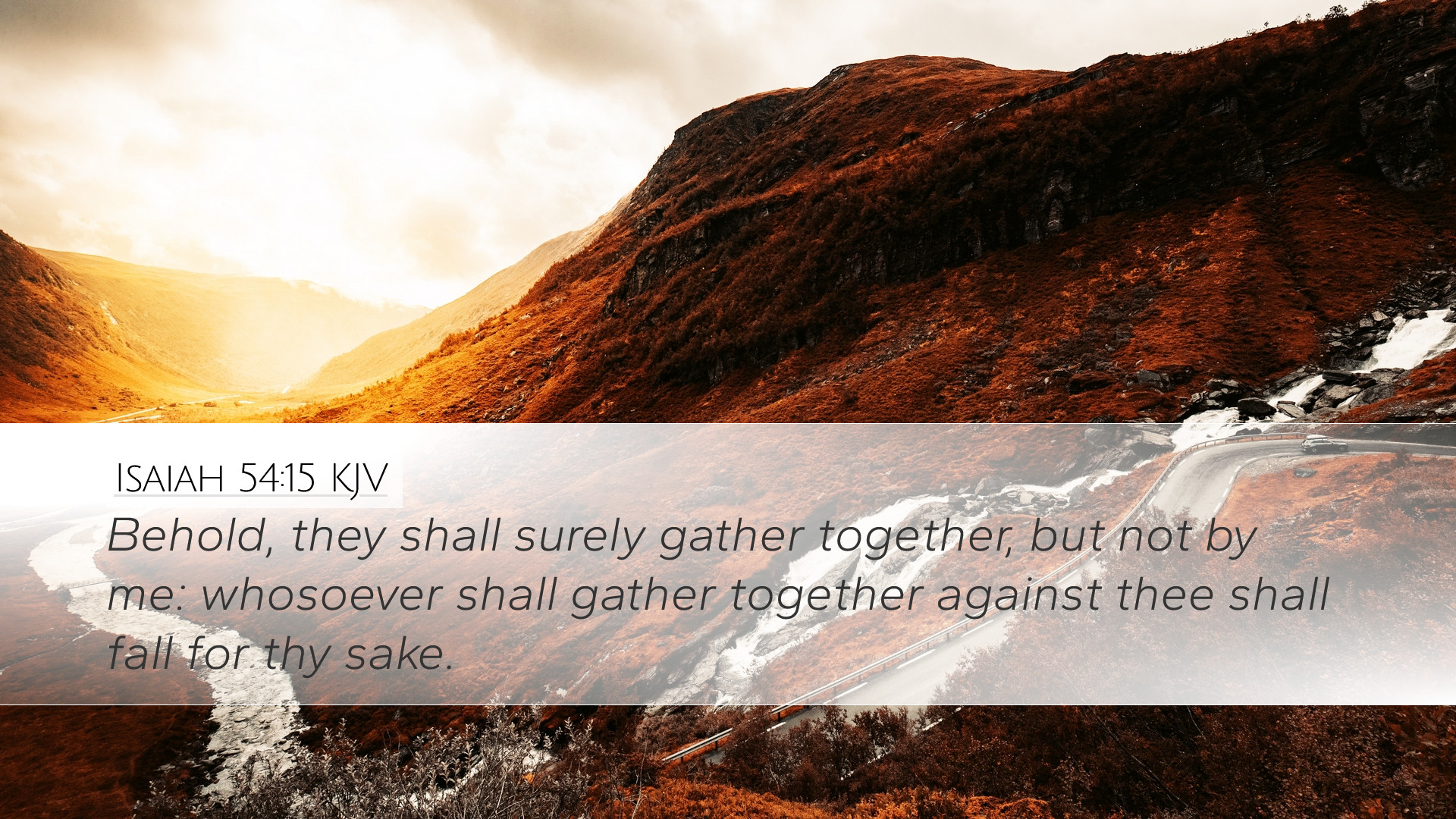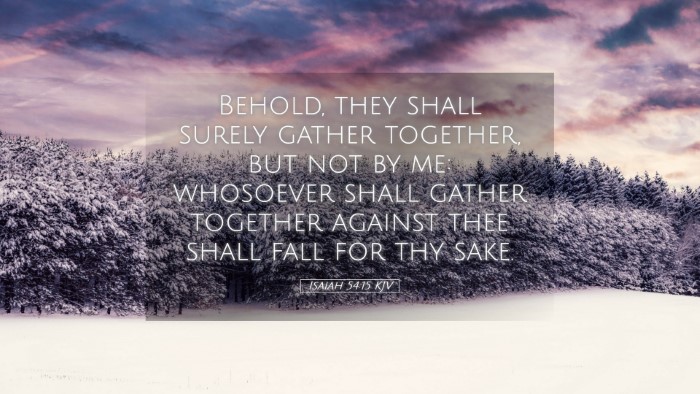Commentary on Isaiah 54:15
Isaiah 54:15 states:
"Behold, they shall surely gather together, but not by me: whosoever shall gather together against thee shall fall for thy sake."
Contextual Overview
This verse is situated in a broader context of comfort and assurance to the people of Israel, particularly after their experience of exile. The preceding chapters speak of God’s everlasting kindness and the promise of restoration. Isaiah chapters 54 and 55 portray a vision of hope for the future, emphasizing God's unwavering commitment to His covenant people.
Theological Implications
This verse presents profound truths about God’s sovereignty and the security of His people. The notion that adversaries will gather but not under God's approval emphasizes divine control over human intentions.
- Sovereignty of God: As Matthew Henry comments, the phrase "but not by me" highlights that while opposition may arise, it is ultimately under God's dominion. He allows or disallows without losing authority.
- Divine Protection: Albert Barnes notes that the promise of safety remains intact, affirming that those who oppose the faithful will not prosper. God’s people can find solace in His covenantal grace.
- Conflict and Assurance: Adam Clarke delves into the nature of spiritual conflict, indicating that while we may face trials, God’s assurance is that those who gather against us shall fall, underlining the ultimate victory of His people.
Historical Context
Understanding the historical backdrop is critical for interpreting this verse. Israel faced numerous external threats throughout its history, and the Assyrian and Babylonian exiles were significant events that instilled fear and despair among the Israelites. This verse, therefore, provides a prophetic assurance despite their precarious situation.
Pastoral Application
For pastors and spiritual leaders, Isaiah 54:15 offers critical insights for guiding congregational life. Here are some applications:
- Encouragement amidst Opposition: Leaders should remind their congregations that facing opposition does not equate to abandonment by God. Instead, it can serve as an opportunity for God’s power to manifest.
- Building Faith: This passage encourages believers to trust in God’s plan, even when circumstances suggest otherwise. Pastoral counseling can draw upon this scripture to cultivate resilience among believers.
- Prayer for Protection: Encouraging prayer for protection against adversarial forces reinforces the belief in God’s sovereignty and care.
Theological Reflection
Scholars reflect on the meaning of “gather together” as it pertains to both physical and spiritual threats. This duality is relevant in contemporary discussions of spiritual warfare.
- Physical Gatherings: Those who organize against the faithful may do so for various reasons, from socio-political to theological disdain, but God remains sovereign over these gatherings.
- Spiritual Warfare: The call to arms in spiritual battles points to the need for believers to engage in prayer and supplication, acknowledging that our struggles are not merely earthly but heavenly.
Conclusion
Isaiah 54:15 serves as a powerful reminder of God's commitment to His people, affirming that while challenges may arise, God’s faithfulness will ensure their downfall. It brings hope not only to the original audience facing exile but also to modern readers who encounter various forms of opposition, assuring them of God’s protective embrace.
This verse beautifully encapsulates the dual themes of assurance and the sovereignty of God—a call to rest in divine promises amidst life's uncertainties.


